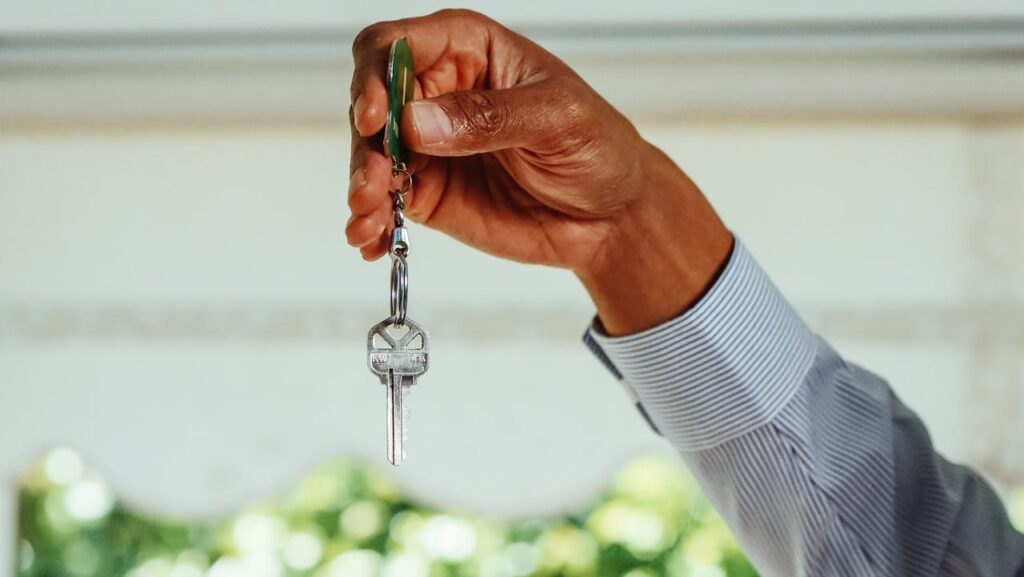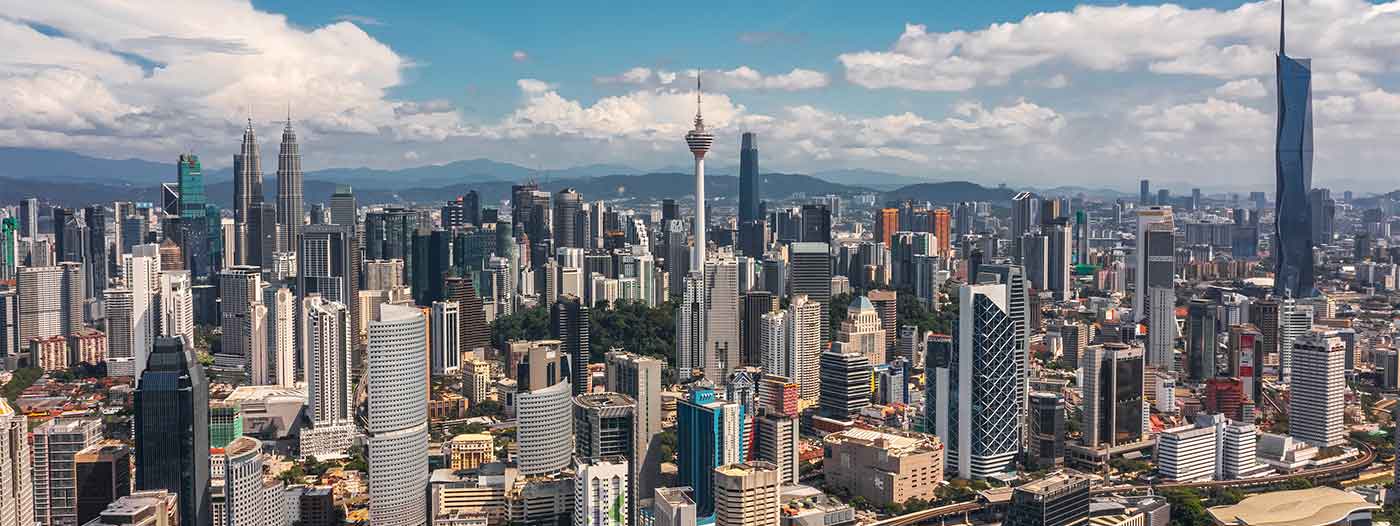

Since 2010, the Global Law Experts annual awards have been celebrating excellence, innovation and performance across the legal communities from around the world.
posted 4 months ago
For many, the dream of owning a home abroad blends lifestyle aspirations with financial opportunity. Malaysia, positioned between Thailand and Indonesia, offers just that — a stable economy, tropical beauty, and a sophisticated property market that has long attracted retirees, investors, and second-home seekers alike.
In recent years, the Malaysian government has modernised both its property ownership framework and the Malaysia My Second Home (MM2H) long-term social visa. These updates, along with the new stamp duty structure introduced in Budget 2026, have reshaped the landscape for foreign property buyers. This article provides a current, practical overview for anyone considering Malaysian real estate ownership under the latest legal and fiscal environment.
Foreign ownership of property in Malaysia is legal but regulated. Foreign individuals and non-resident companies can buy residential property — such as apartments, condominiums, or landed homes — provided they comply with the following key rules:
Prohibited categories: Foreigners cannot purchase agricultural land or Malay-reserved land.
Minimum purchase price: Each Malaysian state sets its own minimum value threshold for foreign ownership. For instance, Kuala Lumpur generally requires a minimum price of RM1 million, Selangor around RM2 million for landed properties and RM1.5 million for stratified ones, while Penang requires RM1 million on the island and RM500,000 on the mainland.
State Authority consent: Every foreign purchase requires written approval from the respective state land authority. This process is known as obtaining “Foreigner Consent” or “Consent to Purchase and Charge.”
Because land matters are under state jurisdiction, these thresholds and approvals vary. Foreign buyers should therefore engage a Malaysian solicitor experienced in conveyancing to ensure the acquisition is lawful and compliant.

The MM2H Programme was restructured in 2024 into a three-tier model to better target different categories of long-term residents. The three tiers are known as Silver, Gold, and Platinum, and each comes with its own financial and property requirements.
At the Silver tier, participants must place a fixed deposit of RM500,000 in a licensed Malaysian bank and are required to purchase a property valued at RM600,000 or more. The visa under this tier is valid for five years, and the property purchased must generally be held for at least ten years before it can be sold.
The Gold tier requires a fixed deposit of RM2 million and allows participants to purchase property worth at least RM1 million. The visa validity extends to about fifteen years, with the same general stay requirement — that is, spending around sixty days per year in Malaysia. Participants may withdraw up to half of their fixed deposit after one year for specific approved purposes such as property acquisition, healthcare, or education.
The Platinum tier caters to higher-net-worth individuals. It requires a fixed deposit of RM5 million and mandates a minimum property purchase of RM2 million. This tier grants a twenty-year visa and may allow limited business or investment participation. As with the other tiers, up to 50% of the fixed deposit can be withdrawn after the first year for approved uses.
It is important to note that the MM2H visa does not grant permanent residency. Furthermore, Sarawak operates a separate version of the programme — known as S-MM2H — with its own rules, including a lower fixed deposit requirement of RM500,000 and a minimum age of 30 for applicants.
Buying property in Malaysia involves more than just the purchase price. Foreign buyers should prepare a realistic budget that accounts for several additional expenses.
These include stamp duty (discussed below), legal fees (which are calculated on a sliding scale and typically range from 1% to 1.5% of the purchase price), state consent fees, and registration charges. If the buyer intends to take out a local mortgage, there will also be loan agreement stamp duty and bank processing fees.
Property prices differ significantly across Malaysia. The capital, Kuala Lumpur, and surrounding Selangor remain premium markets, while Penang, Johor Bahru, and parts of Sabah appeal to lifestyle buyers who prefer coastal or suburban settings. Buyers are encouraged to study the local market dynamics and foreign ownership restrictions in each state before committing to a purchase.
Foreigners can locate properties through several channels — licensed estate agents, developers, or online property portals such as EdgeProp, PropertyGuru, or iProperty. All agents must be registered with the Board of Valuers, Appraisers, Estate Agents and Property Managers (BOVAEP).
Financing is available from Malaysian banks, but foreign borrowers generally receive a lower margin of financing, often between 60% and 70% of the property’s appraised value. Lenders typically require proof of stable income, overseas assets, or a fixed deposit in Malaysia.
It is also worth noting that although cryptocurrency transactions are not recognised as legal tender in Malaysia, the Malaysian courts have recently recognised cryptocurrency as a valid exchange medium for property purchases so long as both the Seller and Buyer are willing to accept the digital asset as consideration.
Real estate lawyers are generally engaged to assist the parties to prepare the documentation related to the sale & purchase of the Property as well as loan documentation, with legal fees usually prescribed based on the transaction value and loan amount respectively. Both Seller and Buyer are free to appoint their own legal counsels to represent them although in the affairs of buying directly from a property developer which is based on a prescribed sale & purchase agreement, the developer will have its own lawyers to prepare the said prescribed agreement.

Once you have identified a suitable property, the process typically begins with a Letter of Offer and a small deposit — usually between two and three percent of the purchase price. This is followed by the signing of a Sale and Purchase Agreement (SPA), drafted or reviewed by a licensed solicitor, which sets out the full terms of the transaction.
A further seven to eight percent deposit is paid upon signing the SPA. The completion period for sub-sale properties is typically three to six months, during which your lawyer will:
Apply for State Authority consent;
Conduct land title searches and due diligence;
Arrange for adjudication and payment of stamp duty; and
Coordinate the financing documentation if a loan is involved.
Effective 1 January 2026, Malaysia’s new Budget 2026 introduces a revised stamp duty regime that significantly affects foreign purchasers.
Foreign individuals and foreign-owned companies buying residential property will now pay a flat stamp duty rate ranging from 4% to 8% of the property’s value. The exact rate depends on the value of the property and may vary slightly from one state to another.
This replaces the earlier progressive rate system for foreign buyers.
For comparison, Malaysian citizens and permanent residents continue to pay stamp duty on a progressive scale — one percent on the first RM100,000, two percent on the next RM400,000, three percent on the next RM500,000, and four percent on any amount above RM1 million.
In addition, Malaysia has extended its stamp duty exemption for first-time homebuyers purchasing properties priced up to RM500,000 until 31 December 2027. However, this exemption is available only to Malaysian citizens, not to foreign buyers under MM2H.
From 2025 onwards, the government also began imposing stamp duty on property exchanges or partitions, even when there is no monetary consideration, such as family transfers or gifts. Likewise, tenancy and lease agreements are now subject to revised stamp duty rates depending on the rental amount and lease duration.
After all payments are made and approvals obtained, the final step is to register the property with the relevant Land Office. Once registered, the Issue Document of Title — Malaysia’s official land ownership certificate — will be issued in the buyer’s name.
The entire process, from signing the SPA to final registration, typically takes between three months and one year, depending on whether the property is purchased directly from a developer or through a private resale.
After completion, buyers should ensure that all property-related taxes, utilities, and insurance are transferred and updated under their ownership.
Malaysia continues to balance openness to foreign investment with prudent safeguards for its domestic property market. The revised MM2H framework and the updated stamp duty system under Budget 2026 reflect this philosophy — encouraging serious, long-term investors while maintaining sustainable market conditions.
For foreigners seeking a safe, stable, and culturally rich environment, Malaysia remains one of the most livable destinations in Asia. With proper legal and financial planning, owning property in Malaysia is not only achievable but can also serve as a secure investment and a gateway to regional opportunity.
For detailed guidance or legal consultation on property acquisition, MM2H eligibility, or cross-border financing, you may contact: brentyap@vikneshyap.com
Stay informed with the latest legal developments at Global Law Experts
Author


No results available
posted 17 hours ago
posted 20 hours ago
posted 20 hours ago
posted 20 hours ago
posted 20 hours ago
No results available
Find the right Legal Expert for your business
Global Law Experts is dedicated to providing exceptional legal services to clients around the world. With a vast network of highly skilled and experienced lawyers, we are committed to delivering innovative and tailored solutions to meet the diverse needs of our clients in various jurisdictions.

Thinking of buying property in Brazil? Start with a full legal safety net.
✔️ Check title and ownership history
✔️ Verify no debts or disputes
✔️ Confirm zoning and permits.
#BrazilProperty #RealEstateInvesting #LegalDueDiligence #ForeignInvestment #PropertyLaw #GlobalRealEstate #InvestmentRisk #BrazilLaw

When your international business faces financial distress, quick action is key! 🔑 Negotiating with creditors, restructuring debt, and understanding insolvency laws can help regain stability. Global Law Experts is here to guide you through your options.
🌍Explore the details on our website.
🔗Link in bio
#GlobalLawExperts #CommercialLaw #BusinessLaw #LegalAdvice #BusinessGrowth #LegalTips #BusinessStrategy #LegalCompliance #Law #LegalKnowledge #LegalAwareness #Law101 #LegalEducation #IntellectualProperty

Thinking of buying property in Brazil? Don’t stop at the contract or key handover. Make sure the title is officially registered before calling it yours.
#BrazilRealEstate #PropertyLaw #GlobalInvestment #ForeignInvestors #LegalTips #DueDiligence #RealEstateRegistration #SecureInvestment

Getting a termination notice right now? Know your rights. Valid reason, fair process, proper notice they matter. Don’t let a bad dismissal walk away without accountability.
#EmploymentLaw #WorkerRights #Termination #LaborLaw #FairDismissal #WorkplaceJustice #LegalAwareness #GlobalWorkforce

Running a business is hard enough — lawsuits shouldn’t make it harder. 🚫 Protect your business with the right legal strategies and expert tools from Global Law Experts. Let’s secure your future together! 💼
🌍Explore the details on our website.
➡️www.globallawexperts.com
#GlobalLawExperts #CommercialLaw #BusinessLaw #LegalAdvice #BusinessGrowth #LegalTips #BusinessStrategy #LegalCompliance #Law #LegalKnowledge #LegalAwareness #Law101 #LegalEducation #IntellectualProperty #Infringed #Ecommerce #LegalBranding
Global Law Experts is dedicated to providing exceptional legal services to clients around the world. With a vast network of highly skilled and experienced lawyers, we are committed to delivering innovative and tailored solutions to meet the diverse needs of our clients in various jurisdictions.

Thinking of buying property in Brazil? Start with a full legal safety net.
✔️ Check title and ownership history
✔️ Verify no debts or disputes
✔️ Confirm zoning and permits.
#BrazilProperty #RealEstateInvesting #LegalDueDiligence #ForeignInvestment #PropertyLaw #GlobalRealEstate #InvestmentRisk #BrazilLaw

When your international business faces financial distress, quick action is key! 🔑 Negotiating with creditors, restructuring debt, and understanding insolvency laws can help regain stability. Global Law Experts is here to guide you through your options.
🌍Explore the details on our website.
🔗Link in bio
#GlobalLawExperts #CommercialLaw #BusinessLaw #LegalAdvice #BusinessGrowth #LegalTips #BusinessStrategy #LegalCompliance #Law #LegalKnowledge #LegalAwareness #Law101 #LegalEducation #IntellectualProperty

Thinking of buying property in Brazil? Don’t stop at the contract or key handover. Make sure the title is officially registered before calling it yours.
#BrazilRealEstate #PropertyLaw #GlobalInvestment #ForeignInvestors #LegalTips #DueDiligence #RealEstateRegistration #SecureInvestment

Getting a termination notice right now? Know your rights. Valid reason, fair process, proper notice they matter. Don’t let a bad dismissal walk away without accountability.
#EmploymentLaw #WorkerRights #Termination #LaborLaw #FairDismissal #WorkplaceJustice #LegalAwareness #GlobalWorkforce

Running a business is hard enough — lawsuits shouldn’t make it harder. 🚫 Protect your business with the right legal strategies and expert tools from Global Law Experts. Let’s secure your future together! 💼
🌍Explore the details on our website.
➡️www.globallawexperts.com
#GlobalLawExperts #CommercialLaw #BusinessLaw #LegalAdvice #BusinessGrowth #LegalTips #BusinessStrategy #LegalCompliance #Law #LegalKnowledge #LegalAwareness #Law101 #LegalEducation #IntellectualProperty #Infringed #Ecommerce #LegalBranding
Send welcome message